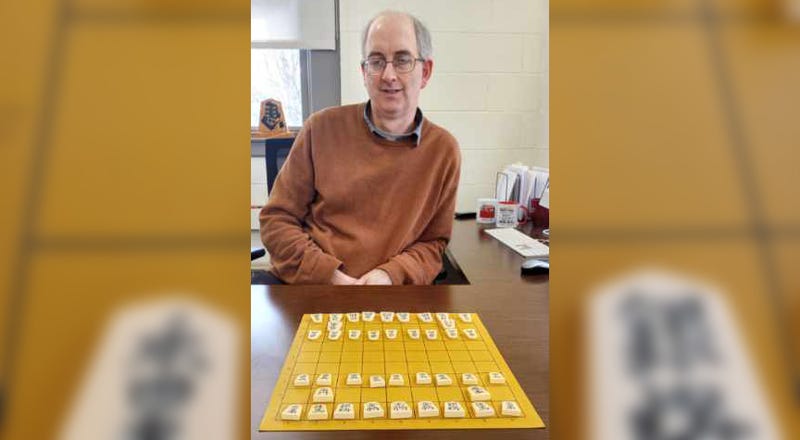
SWARTHMORE, Pa. (KYW Newsradio) — Many colleges and universities have chess clubs, but one local college is one of the few to offer a Japanese form of chess.
The game is called shogi, and it’s a distant cousin of the chess you’re used to playing. Swarthmore College philosophy professor Alan Baker was introduced to the game in the mid-’90s during a visit to Japan.
Shogi has its similarities to chess, according to Baker. There is a king and the object is to checkmate the opponent. There are, however, crucial differences between shogi and chess, such as the board being a 9-by-9 grid instead of 8-by-8 in chess.
The other big difference, Baker explained, is that the pieces are all the same color. “If you look at a shogi board, the pieces go one way and they point the other way. That means when you capture your opponent's piece, it leaves the board, but you can now use it instead of moving,” he said.
“So if I capture your bishop, it's now my bishop. And instead of moving on a next move, I can drop the bishop as my own piece. So there's a kind of recirculation of the pieces.”
In 2005, Baker and several students started playing Shogi on campus, then officially started the Swarthmore College Shogi Club in 2007. It’s believed to be the longest running college-based shogi club in the country.
“One of the nice things about shogi is, almost no one comes in knowing the rules. So it's unlike, say, a chess club where you might be intimidated because these people have been playing for 20 years or 15 years. Nearly everyone's new to shogi. So it's a fairly quick game to learn, and everyone is learning it at some stage,” he said.
The Swarthmore College Shogi Club meets weekly, with anywhere from five to 20 students usually taking part.
“It's fluctuated a little bit from year to year, and there's always been a core of enthusiasts and other people who are learning.”
